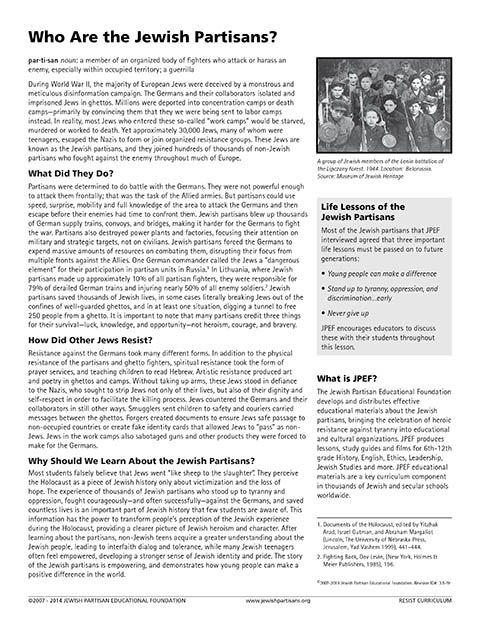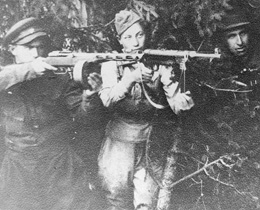Lithuania

There were approximately 850 Jews in the Lithuanian partisan movement. An additional 450 Lithuanian fighters in the Belarusian partisan movement and another 350 Lithuanian Jews in other groups brought the total to 1,650 Lithuanian Jews who fought as partisans. Of the 92 partisan battalions, Jews fought in the 22 that had sterling records in battle. Survival in the forest was extremely difficult in Lithuania, due to pervasive antisemitism in many areas of the country. Lithuanian, Polish and Belarusian civilians killed many Jewish partisans. Non-Jewish partisans were also a threat to the Jews.
In 1943, Lithuanian Jewish partisans became unified under the direction of Soviet Lithuanian partisan movement. Admission of Jews to the partisans was limited for political and military reasons as well as because of antisemitism. Even in some of the mixed units Jews experienced discrimination. Yet the partisan movement was their only vehicle to actively fight against the Nazis. In some cases, all-Jewish units were formed within the larger organization of Lithuanian partisans.
Among their many successful missions, Lithuanian Jewish partisans derailed enemy trains, dynamited miles of train tracks, destroyed bridges, factories, water towers and electrical transformers, and cut hundreds of miles of telephone and telegraph lines. In Vilna, they damaged the power station and sabotaged the water system. Other times they secured arms and food supplies.
Ten percent of the Lithuanian partisan population was comprised of Jewish partisans, but units in which Jews served were responsible for 79% of the train derailments, 72% of the locomotives destroyed, and 22.9 % of the soldiers killed. Sabotage was only one their specialties. In total, 1,650 Jews took part in the resistance movement in Lithuanian partisan movement. A total of 250 Jews were killed, and many received medals for their prominent service.



